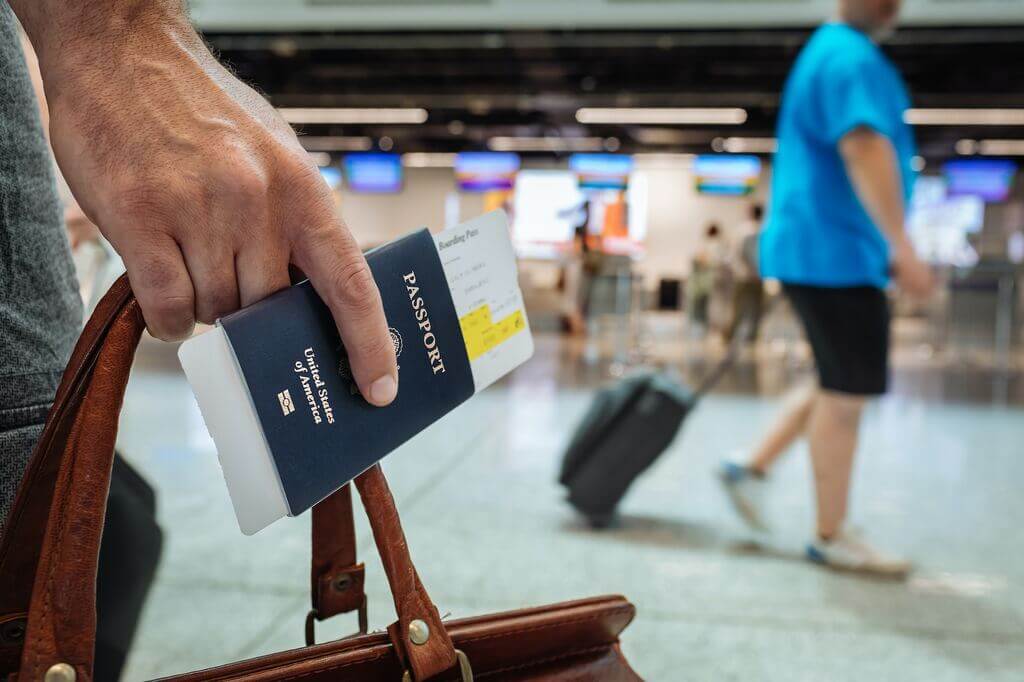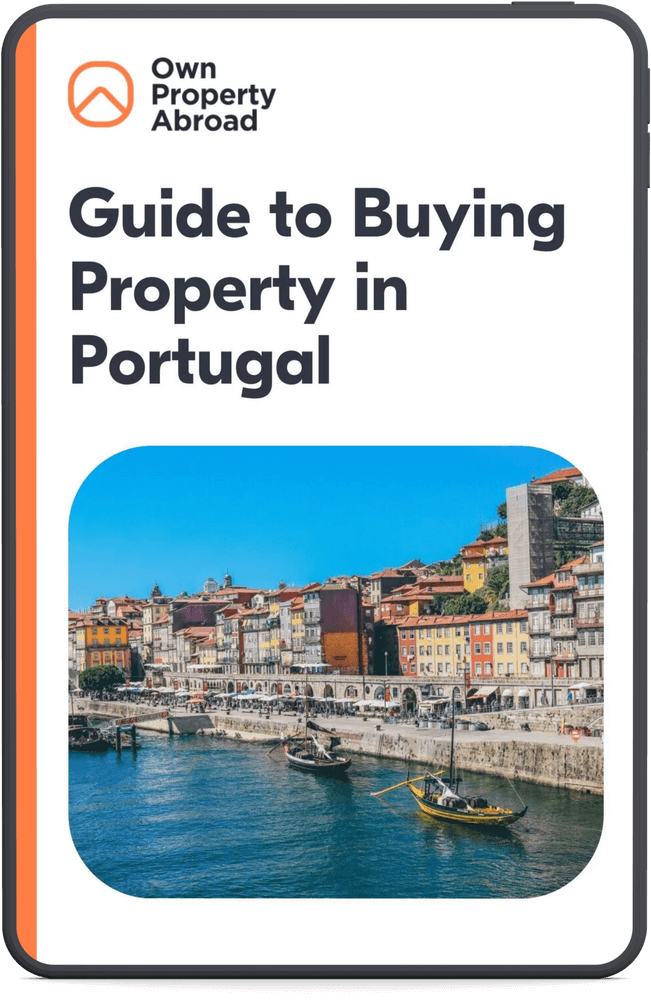How to apply for a D7 Visa in Portugal?
Non-EU citizens can apply for the D7 Visa in Portugal. It’s possible to apply for a D7 Visa in Portugal from the UK, the United States, and any other country outside the European Union. To be eligible for the D7 Visa, applicants must have a minimum monthly income of €760 ($831). An extra 50% of this amount is required for the spouse and 30% for each dependent child, regardless of their country of origin.
This visa allows individuals and their families to reside in Portugal legally and is particularly beneficial for retirees and those who rely on passive income. By attracting individuals who contribute to the country’s economy, the D7 Visa helps promote growth and development in Portugal.
Valuable insights and practical advice, distilled from years of expertise and real-world experience.


Step 1: Obtain a NIF (Tax Identification Number)
The first step in applying for the Portugal D7 Visa is acquiring a Numero Identificacao Fiscal (NIF), your Portuguese Tax Identification Number. This can be obtained at any government finance office in Portugal. If you cannot be physically present in Portugal, you can authorize a fiscal representative with power of attorney to obtain the NIF on your behalf.
Take the first step towards obtaining your Portuguese NIF by clicking the button below and completing the process online. For only $150, you can easily acquire your NIF and enjoy the benefits it offers.
Step 2: Open a bank account
After obtaining your NIF, opening a bank account in Portugal becomes mandatory for getting the D7 Visa or purchasing property there. Foreigners can easily open a bank account with popular options such as Millennium BCP, Novo Banco, Banco Santander Totta, Banco BPI, or Caixa Geral de Depósitos.
Visit a local branch of your chosen bank and provide the required documents, including your passport, proof of address, proof of employment, NIF, Portuguese phone number, and a cash deposit of approximately €250 ($273). Upon completing the registration process, you will receive a debit card.
You can open a bank account in Portugal through an online service, that allows you to open a bank account remotely (3 to 4 weeks) or in-person (1 to 2 weeks). Click the button below to get started.
Step 3: Securing a place to live
To fulfill the Portugal D7 Visa requirements, you must provide proof of accommodation in Portugal. This can be in the form of a rental agreement or, if you plan to retire in the country, by purchasing a suitable property.
Step 4: Gather all documentation and complete the D7 Visa application form
Collect all the necessary documentation before filling out the Portugal D7 Visa application form. Take your time to ensure accuracy and completeness. Once you have assembled the essential documents, complete the Portugal D7 Visa application form. Review the form thoroughly to ensure all the information is accurate and complete.
Step 5: Submit the D7 Visa application
It is of utmost importance to meticulously complete the application and ensure the accuracy of the provided information to facilitate the smooth processing of your D7 Visa application. The Embassy may require you to leave your passport with them temporarily to affix the visa to your passport.
Step 6: Receive your new visa
Upon successfully processing your D7 Visa application, the Portuguese Embassy will notify you via email or mail. Typically, this notification takes around 60-90 days. Once approved, the Embassy will affix your new Temporary Residency Visa to your passport. To collect your passport with the visa attached, you must present your receipt and a copy of your ID at the Embassy on weekdays.
Ensuring that the visa details are accurate is crucial to avoid any complications during border control. Incorrect information could lead to potential denial of entry and even being sent back to your home country.

Step 7: Travel to Portugal for your SEF appointment
After receiving your new visa, you can travel to Portugal for four months (120 days). You must schedule an appointment at the Serviço de Estrangeiros e Fronteira (SEF) during this timeframe. If you have provided your intended travel date, the Embassy will usually schedule the SEF appointment for you, which can be found on your new passport under the “appointment” section.
If no appointment is scheduled, you must use the SEF portal to schedule one yourself. It is essential to choose the SEF bureau nearest to your residence. If your planned SEF appointment falls after the expiration of your D7 Visa, you can request a confirmation email from SEF while scheduling the appointment. This email will serve as an extension of your visa. Print this email and keep it with your passport to travel to Portugal, even if your visa has expired.
Step 8: Attending the SEF appointment
During your approximately 20-minute SEF appointment, you must come well-prepared and bring all the required documents and their Portuguese translations. Some of the papers you will need to present include:
- Application form (different from the visa application form).
- Two recent color photographs with a blank background.
- Valid passport and copies.
- Valid residency visa.
- Proof of sufficient funds.
- Proof of accommodation (rental agreement or property purchase documents).
- Permission to check your criminal record.
- Número de Identificação Fiscal (NIF) proving your tax registration.
- Social security document (if applicable).
- Supporting document showing valid medical insurance coverage.
Being excessively prepared for your SEF appointment is highly recommended, as applying for residency in Portugal necessitates comprehensive documentation to ensure a smooth process.
Step 9: Receiving your residency permit
Congratulations on completing the entire application process for your new Portuguese Residence Permit! Although the journey may have been challenging and occasionally tiring, the outcome is advantageous. Your Residence Permit will be dispatched to your home address or the local post office, and you can expect to receive it within approximately two weeks.
Get your D7 Visa in Portugal with Own Property Abroad
Do you want to obtain a D7 Visa in Portugal? Thanks to our knowledge and experience in the local market, we can help with your D7 Visa and real estate matters, such as legal requirements, finding suitable properties, negotiating the best deals, and conducting due diligence.
With our expert team, you won’t have to navigate the complexities of the Portuguese market alone. For further information on how we can assist you, kindly drop your details below or email us at [email protected].
Valuable insights and practical advice, distilled from years of expertise and real-world experience.


Frequently Asked Questions (FAQs)
How to apply for a D7 Visa for Portugal?
To apply for a D7 Visa in Portugal, individuals can start by gathering the necessary documentation and completing the D7 Visa application form. The application must be submitted to the Portuguese consulate or Embassy in their home country or through the online application portal.
Can you apply for a D7 Visa in Portugal?
Yes, it is possible to apply for a D7 Visa in Portugal. The application process involves submitting the required documentation and fulfilling the financial requirements to prove a sustainable passive income.
Where to apply for a D7 Visa in Portugal?
The D7 Visa for Portugal can be applied for at the Portuguese consulate or Embassy in the applicant’s home country. The application can be submitted online through the official website or the SEF portal.
Can I apply for a D7 visa while in Portugal?
Applying for a D7 Visa for Portugal in the applicant’s home country at the Portuguese consulate or Embassy is generally recommended. However, in some instances, it might be possible to apply while in Portugal by scheduling an appointment at SEF and providing the required documentation. It is advisable to consult the official guidelines and requirements for specific details.
Can I apply for a D7 Visa in Portugal online?
Yes, applying for a D7 Visa in Portugal online is possible. The application process can be initiated through the Portuguese consulate, the Embassy’s official website, or the SEF’s online portal.
How much passive income is enough for a D7 visa in Portugal?
The minimum required passive income for a D7 Visa in Portugal is €760 ($831) per month. Additional income percentages are necessary for the spouse and dependent children.
How do I qualify for a D7 visa in Portugal?
To qualify for a D7 Visa in Portugal, applicants must demonstrate a consistent and reasonable net passive income. This can include income from pensions, real estate, intellectual property, or financial investments. The minimum income threshold and supporting documentation requirements need to be met.




